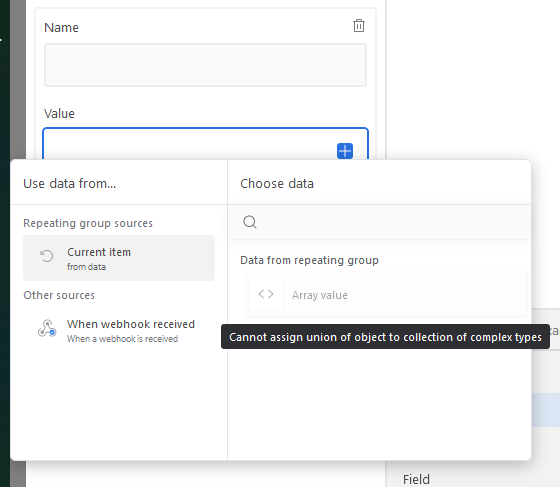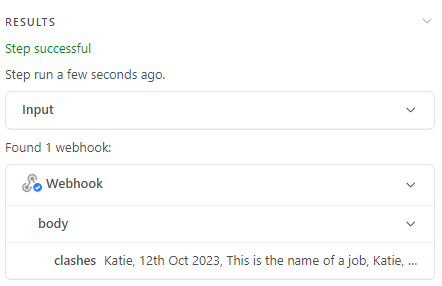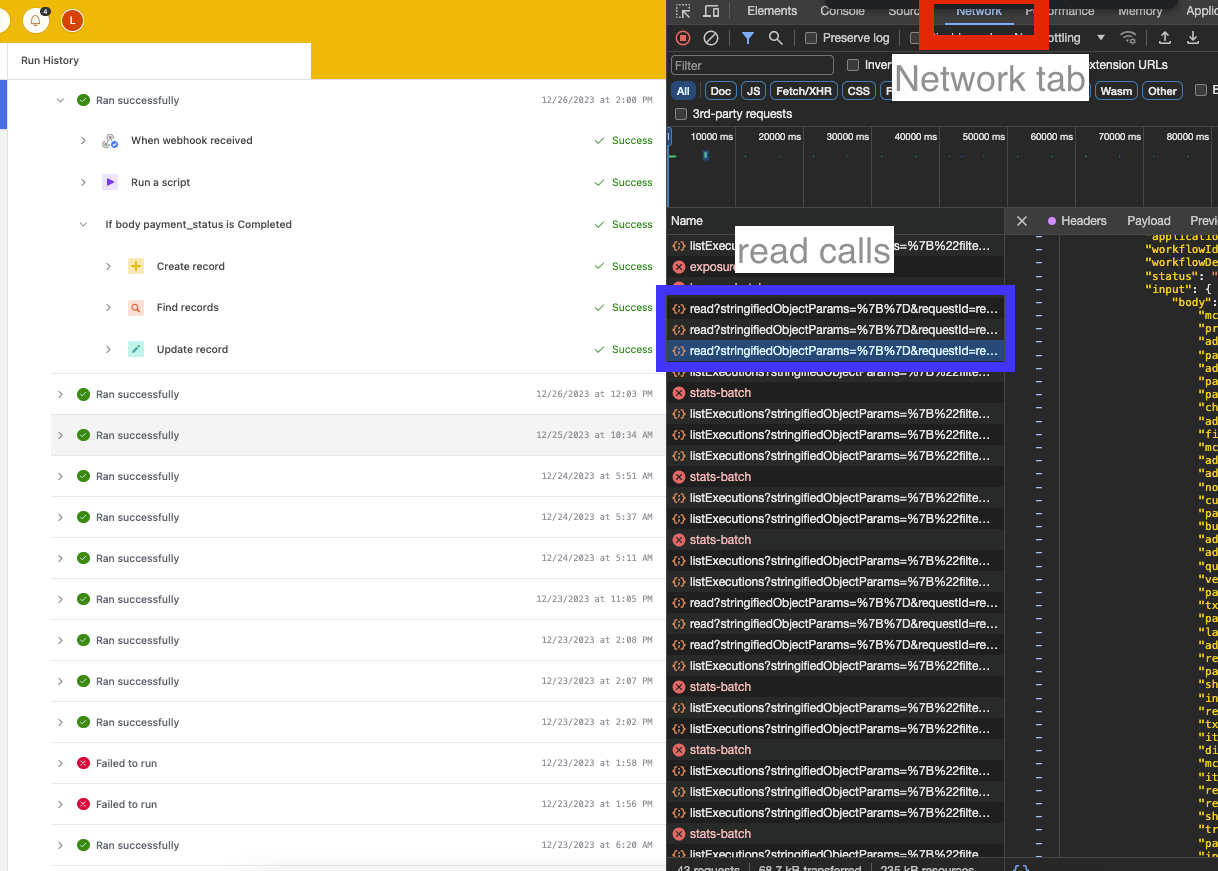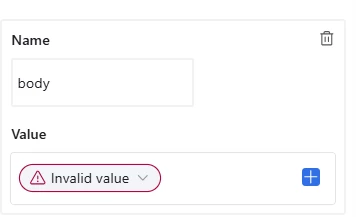I have an automation triggered by an incoming POST web hook.
I do not have control over the format of this workbook however it send its content as a JSON whose structure can vary but at the top level contains a key "data" which is an array of objects each containing information about a particular answer in a form response.
e.g
{
"data": [
{
"title": "What survey/inspection would you like?",
"description": null,
"type": "choices",
"key": "d747n",
"custom_key": null,
"value": "Level 1 Health Check"
},
{
"title": "",
"description": null,
"type": "hidden",
"key": "4pf996l",
"custom_key": "age",
"value": "4"
},
{
"title": "",
"description": null,
"type": "hidden",
"key": "9b8fc",
"custom_key": "cost",
"value": null
}
]
}This means that the when trying to use the data in a script using inputConfig it wants to create a list of values e.g a list of all "custom_keys" or all "types"... not helpful. Moreover it can't actually create a list of the values for the key "value" as it says
"Cannot assign list of collection of complex types to collection of complex types"
Is there no way to simply get the full payload of a webhook as a variable for my script beyond using some external service to serialize it and then parse in the script?









